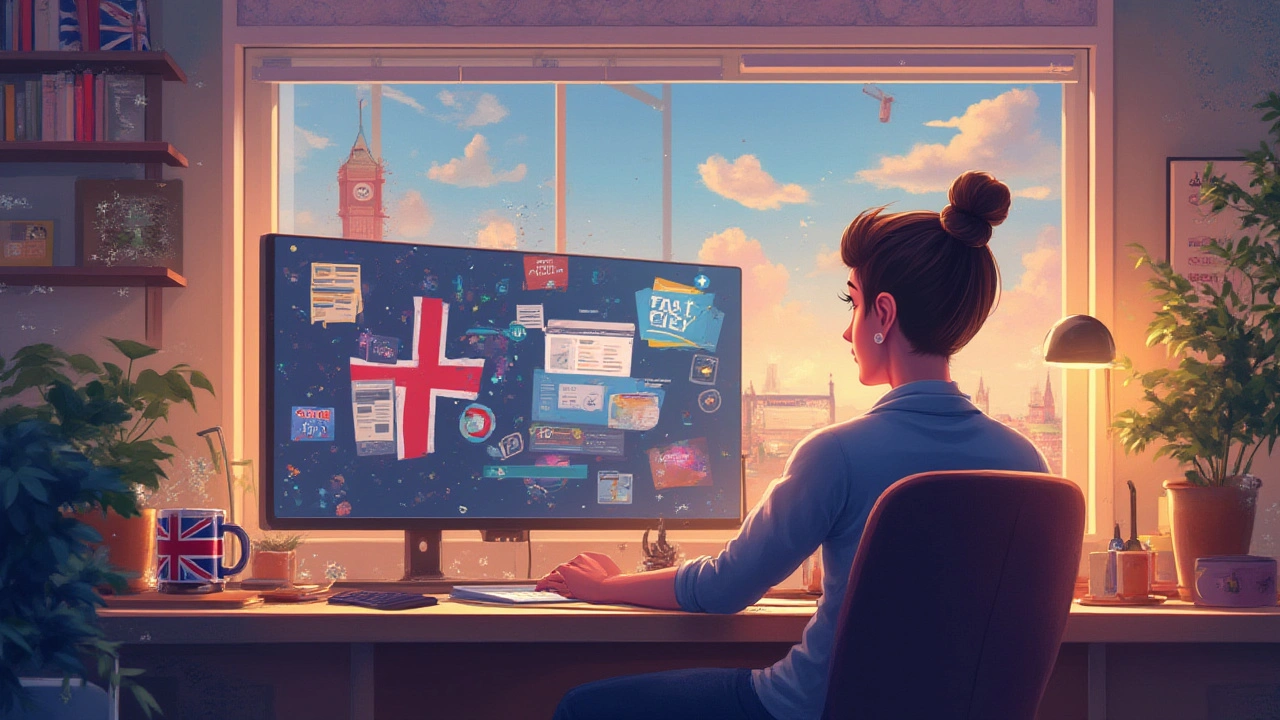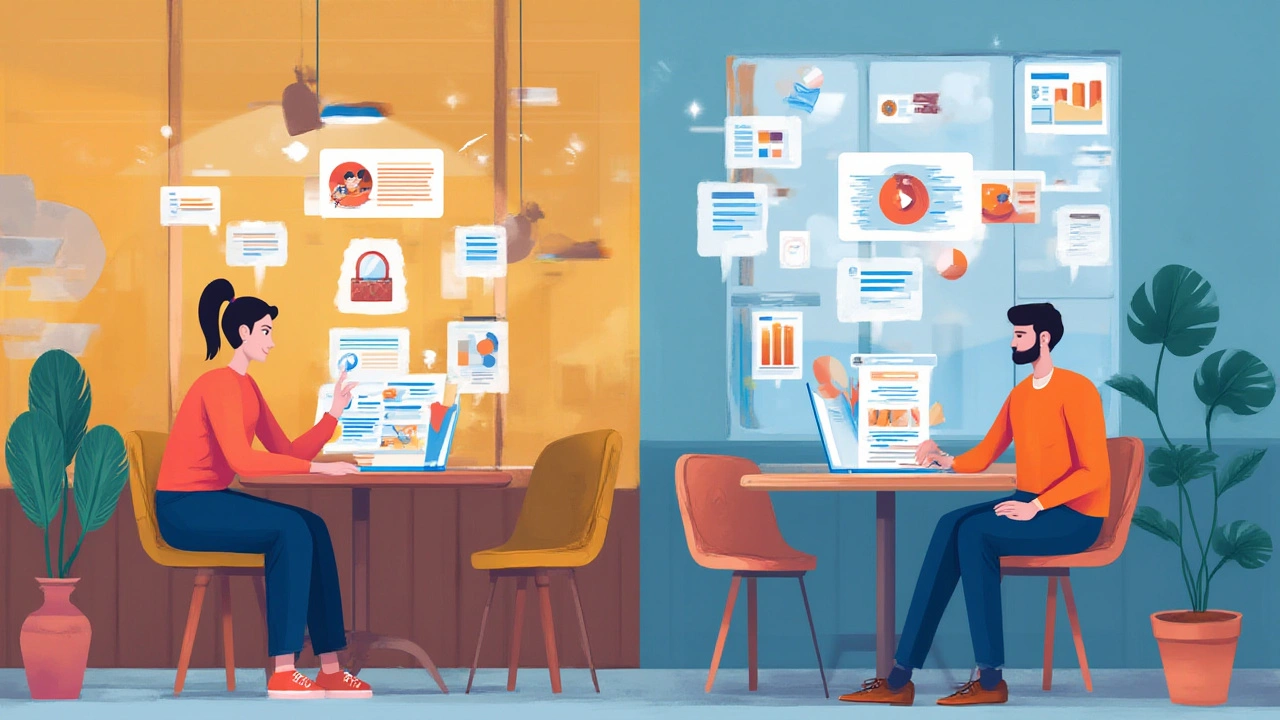If you’ve ever wondered who’s behind the catchy product reviews, the lively newsletters, or those info-packed blog posts that seem to answer your questions before you’ve even asked them, here’s a wild stat: Some major websites now say up to half their copy has passed through AI hands. Not bots spewing gibberish, but engines like ChatGPT—whipping up stories so natural, even pro writers do double takes. Years ago, we thought robots would be bolting car frames, not shaping the words we read. But the reality on July 25, 2025? ChatGPT has completely flipped content creation on its head, and it’s still picking up speed.
Why Everyone Wants ChatGPT for Their Words
Take it from someone living in Auckland, where creative agencies meet tech start-ups over flat whites: People expect fast, high-quality content—and nobody’s got the patience to wait. Before ChatGPT showed up, tight deadlines meant either working late or sacrificing quality. Now, companies can take on way more work, at a higher standard. ChatGPT isn’t just a robot assistant dishing out cookie-cutter content. It learns your tone, nails your brand’s humor, and finds the right level of detail for your audience. I watched Amelia switch gears from writing finance blogs to dreamy travel guides—with ChatGPT helping every step. It takes minutes to get a polished first draft, and human creativity is then saved for editing, checking facts, tweaking jokes, or even adding in local flavor—like stories about Waiheke ferry mishaps.
Think it’s just about speed? No way. ChatGPT levels the playing field. Start-ups that might not even afford a junior copywriter now sound as sharp as the big guys. Examples? One Auckland-based eco skincare brand doubled their blog output last year by feeding their specialist knowledge into the AI and letting it crank out article ideas they’d never have thought of. Suddenly, their web traffic shot up by 70%. Plus, the human team had more time to connect with customers one-on-one, since they weren’t buried in content calendars.
Worried about tone deaf, robotic copy? Not these days. The 2025 version of ChatGPT understands slang, cultural references, trending topics, and even local quirks. If you chat with folks in the industry, they’ll tell you: people actually enjoy reading stuff more, because the tech doesn’t just follow rules—it gets a feel for what makes a reader tick. Social media teams crank out posts during major sports games, ready in moments. Community managers prep personalized responses for every customer query. Marketers A/B test half a dozen email subject lines at once, giving each batch its own flavor. All thanks to a chatbot that acts more like a hyper-efficient writing buddy than a machine.
What happens when AI makes most of the day-to-day content? People shift back to big-picture creativity or focus on unique, in-depth investigations. AI doesn’t just replace human jobs; it supercharges what people can do in each hour. If you’re curious about efficiency, check out these real workplace gains since teams started using ChatGPT combos:
| Task | Pre-AI Time (2022) | ChatGPT Time (2025) | Productivity Change |
|---|---|---|---|
| Blog Post Drafting | 2-3 hours | 20-30 minutes | Up to 85% faster |
| Social Media Campaigns | 6-8 hours/week | 2-3 hours/week | 60% less time |
| Email Newsletter Prep | 4 hours | 45 minutes | 81% faster |
| SEO Content Generation | 3-4 hours | 30 minutes | Nearly 90% faster |
Multiply those numbers by a full year—and you start seeing why even the skeptics are sitting up.

Secrets ChatGPT Brings to Digital Marketing
Here’s something nobody tells you: ChatGPT isn’t just for churning out basic articles. This tool’s real trick is how it lets anyone, from interns to C-levels, punch above their weight in digital marketing. Search rankings matter more than ever, so writing for SEO gets make-or-break important. In 2025, a brush-up from AI doesn’t just help you use your keyword: it suggests fresh long-tail phrases as you write and corrects the old-school “keyword stuffing” problems. People who used to worry their web traffic would flatline if they didn’t hire a whole team now just collaborate with ChatGPT, spitball ideas, and refine headlines in seconds. The SEO game isn’t locked into a secret language of “hacks”—it’s baked in, easy, and fast.
Email marketing is getting even sharper. Gone are the days when people sent one-size-fits-all blasts and hoped for the best. ChatGPT-enabled campaigns let you segment your audience by interests, purchase history, or even location—and then fire off custom-written content that truly lands. For one Auckland café I visit, this meant personalized coffee deals went out based on customer orders. The open rates? Well above 40%, blasting past the industry average. Not only do sales climb, but customers actually feel like you know them.
Another stealthy weapon: social media. Marketers using ChatGPT whip up Twitter threads, TikTok scripts, and Instagram captions that fit their brand voice perfectly. Instead of outsourcing to expensive agencies or patching up awkward intern posts, they get unlimited ideas at the tap of a button. And data shows that posts generated with the help of advanced models get almost 20% more engagement on average. People want to talk about content that feels fresh and real, not like it was copied from last quarter’s campaign.
Content audits and repurposing are painless now. ChatGPT scans through mountains of old blog posts, picks out evergreen sections, and helps rewrite them into fresh guides, ebooks, and LinkedIn posts. For someone like me with a blog graveyard from the early 2020s, this is magic. You don’t throw away all that effort, you give it a second (or third) life. And you do it without getting bogged down in busywork—AI handles the grunt work, while you get creative. Top tip I’ve picked up: Feed ChatGPT your actual analytics and feedback. With the right prompt, it’ll tell you why a post flopped and suggest changes in plain English.
Video and audio marketing have also joined the party. ChatGPT now scripts snappy intros and catchy summaries for podcasts. Teams in Auckland are using it to draft explainer video scripts before the designers even set up a camera. This closes the gap between idea and finished product, saving precious production time and making sure marketing feels coordinated—no more frantic last-minute script rewrites funding someone’s overtime pizza run.
Here’s an easy checklist if you’re starting out with ChatGPT-powered digital marketing campaigns:
- Set up clear brand guidelines and share sample content with the AI—let it learn YOUR style.
- Test different lengths: Sometimes, concise works best, sometimes a story’s worth 1000 words.
- Ask ChatGPT for 5-10 title options and A/B test the winners.
- Feed in analytic results and customer feedback. Let the AI learn from what works (or flops).
- Update prompts as you go. Better prompts equal better results.
- Always review the AI’s output for local quirks, slang, and human specifics before hitting publish.
The secret isn’t about doing less—it’s about doing what matters most, with way more impact.

The Future: Is Human Creativity at Risk or Supercharged?
Here’s where it gets hotly debated at our dinner table: Is ChatGPT the hero we all needed or an existential threat to writers and marketers? There’s a lot of noise, but most pros now see it this way: AI automates the parts that used to be “necessary evil”—the 10th product description, the dry FAQ, the endless editing headaches. Instead, we get to focus on the stuff that makes content shine. Emotional stories. Deep-dive interviews. Eye-catching campaigns. In reality, the real winners combine AI speed with human feeling.
The best agencies and solo creatives are using ChatGPT to build faster workflows, but they’re not just using it as a content vending machine. They feed in live event transcripts, brainstorming voice notes (yes, it can transcribe and restructure those), or complex industry reports. Then they layer in expert opinions, humor, a dash of vulnerability. Suddenly, each new post feels alive. One Auckland ad firm even uses ChatGPT to generate “what if?” campaign pitches and then lets humans run wild with the wildest ideas.
You’re not just posting more for the sake of it. Fresh content means more ways to surprise, delight, and pull in readers or customers. AI can suggest dozens of taglines in a sitting, but after that, a human still picks the punchiest one—and sometimes, it’s the weirdest. My spouse, Amelia, recently used ChatGPT to build out an outline for a piece about urban cycling, then laced in firsthand local stories about near misses with buses. That personal touch stopped the copy from feeling recycled, and readers took notice. Engagement jumped overnight because the words felt truly lived-in.
If you’re a lone freelancer, ChatGPT is like having a whole writing crew in your laptop. But you still get to make the call on what feels right. No algorithm can replace knowing your audience like a friend—knowing what makes a Kiwi or an Aussie smirk, or when to show empathy instead of another sales pitch. A 2025 survey by the Auckland Digital Content Association showed 68% of brands saw better brand sentiment after using AI tools—especially when the final edit had a human hand. The trick is balance.
AI brings new challenges, like the need for fresh fact-checking (ChatGPT sometimes still makes up imaginary stats or gets dates twisted). You need to check for nuance, context, and accuracy. The tools can’t read today’s breaking news unless you feed it in. So, the future isn’t about pressing “make content” and walking away. It’s about collaboration. Use AI to break creative blocks, clear your backlog, and experiment boldly—but hold onto your voice and your judgment. That’s where the magic happens.
No matter the headline hype, the heart of good content hasn’t changed: Tell stories people care about, solve real problems, make readers laugh, think, or act. With ChatGPT, you get there faster, but what matters most is what only YOU can bring to the table. The rest? That’s what the robots are for.


I am Orlando Beauchamp, a marketing maven with a knack for digital strategies. My expertise lies in creating engaging content that drives brand growth and fosters customer relationships. I've devoted my career to exploring the nuances of online marketing, with a particular focus on social media and SEO. I love to share my insights by writing about the latest trends and techniques in online marketing. Through my articles, I aim to help businesses of all sizes tap into the immense potential of the digital world.